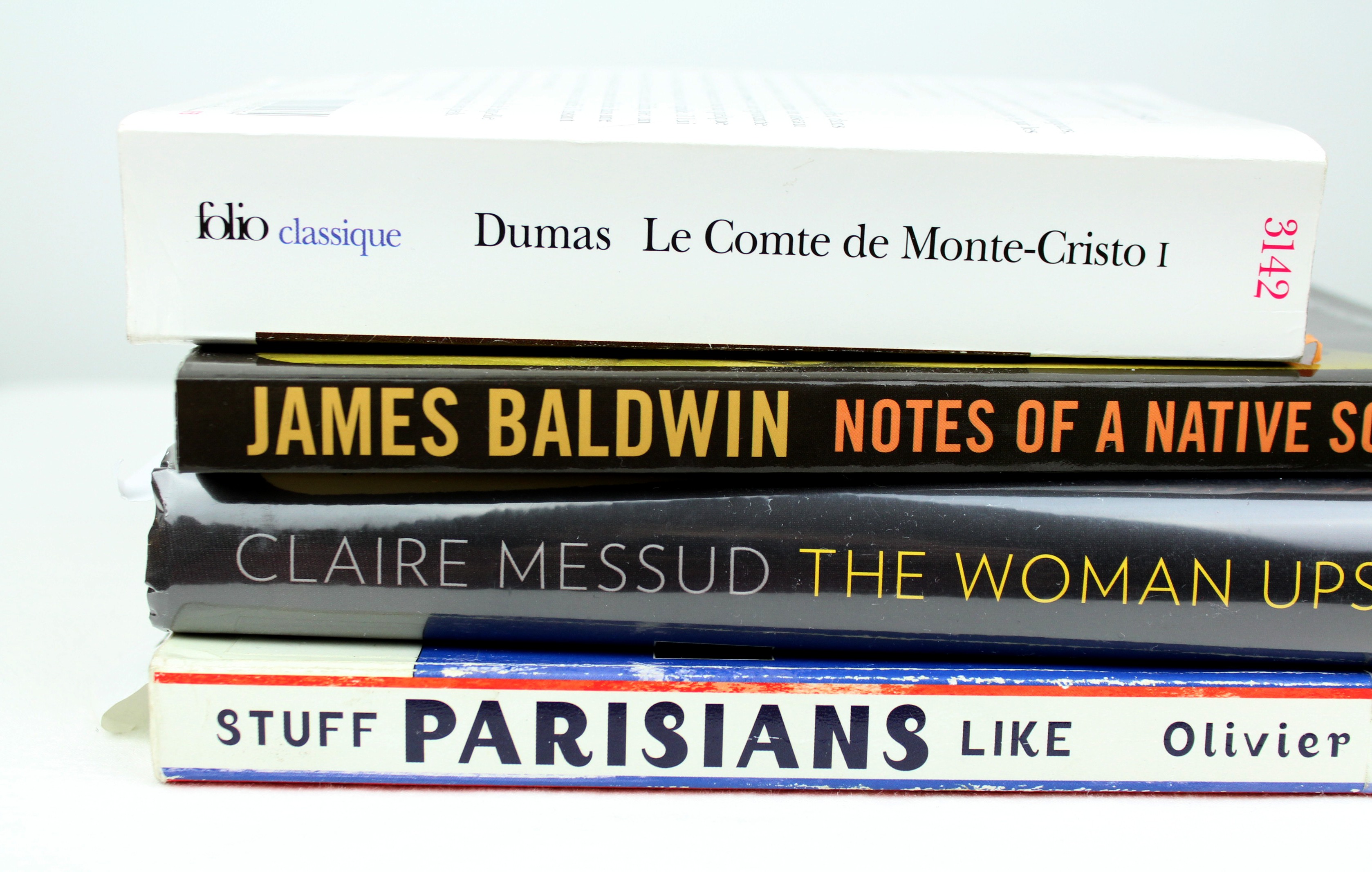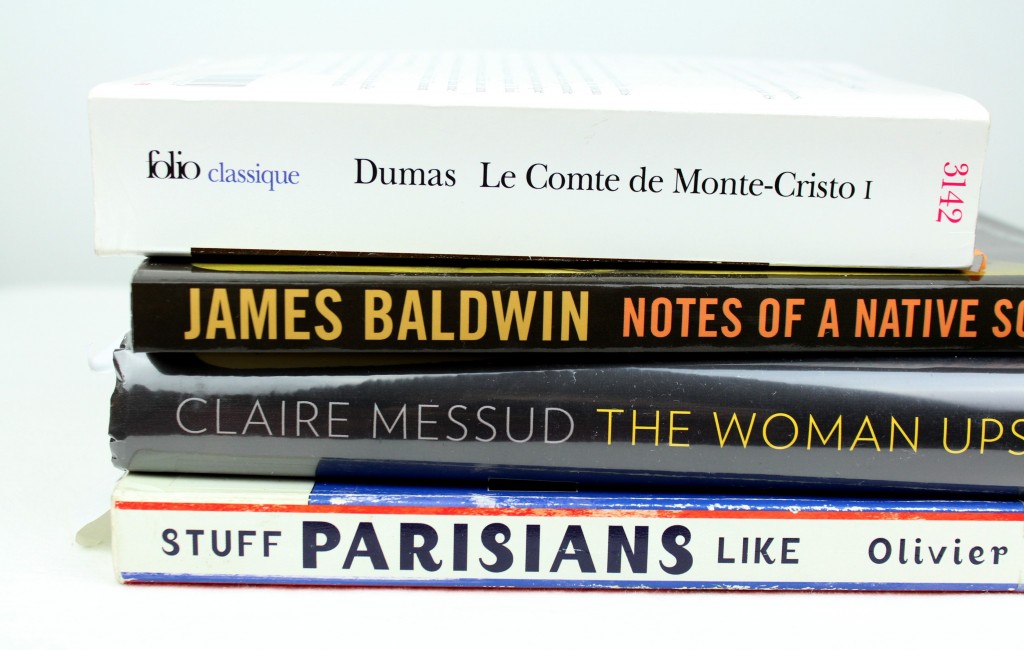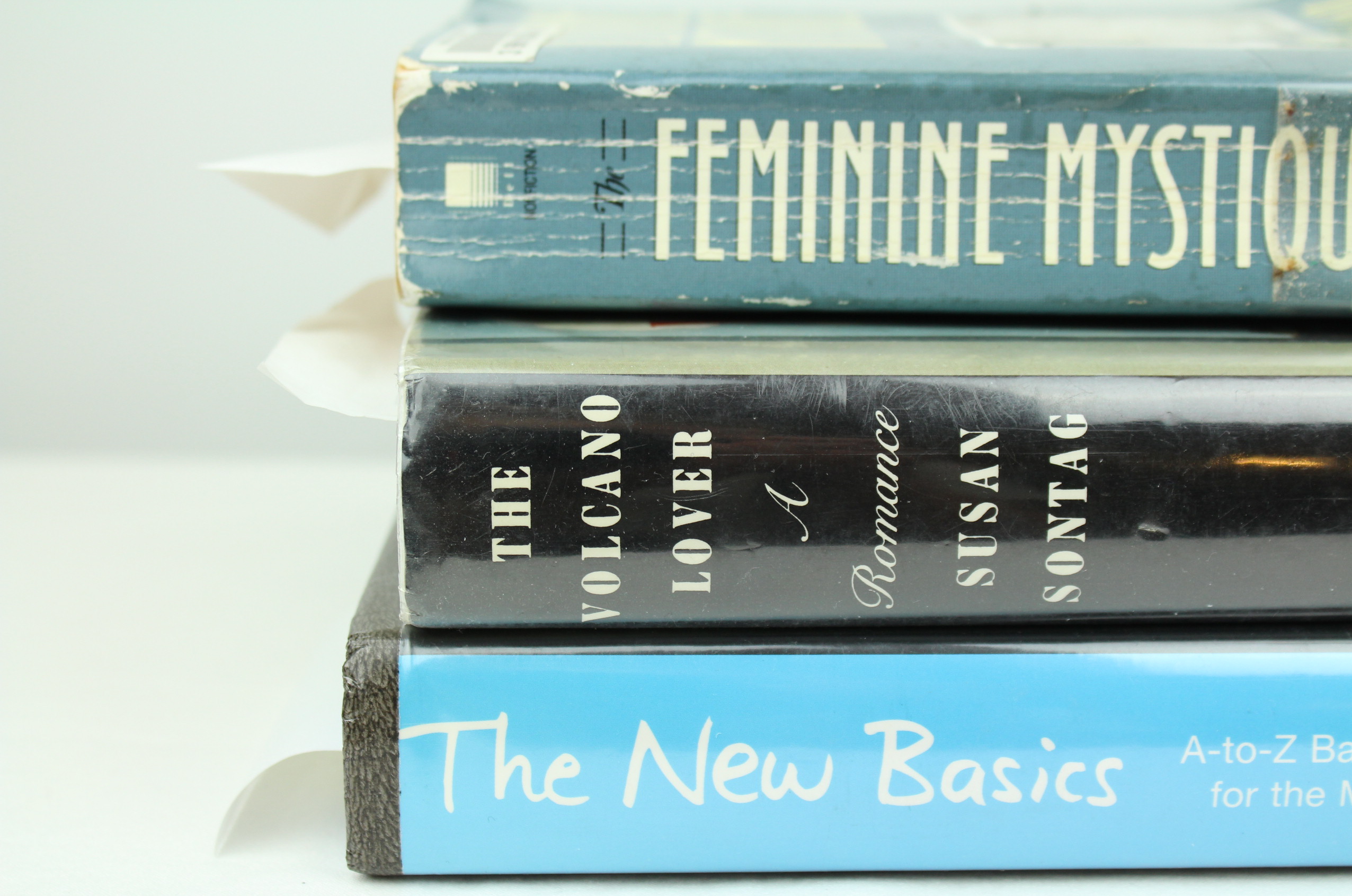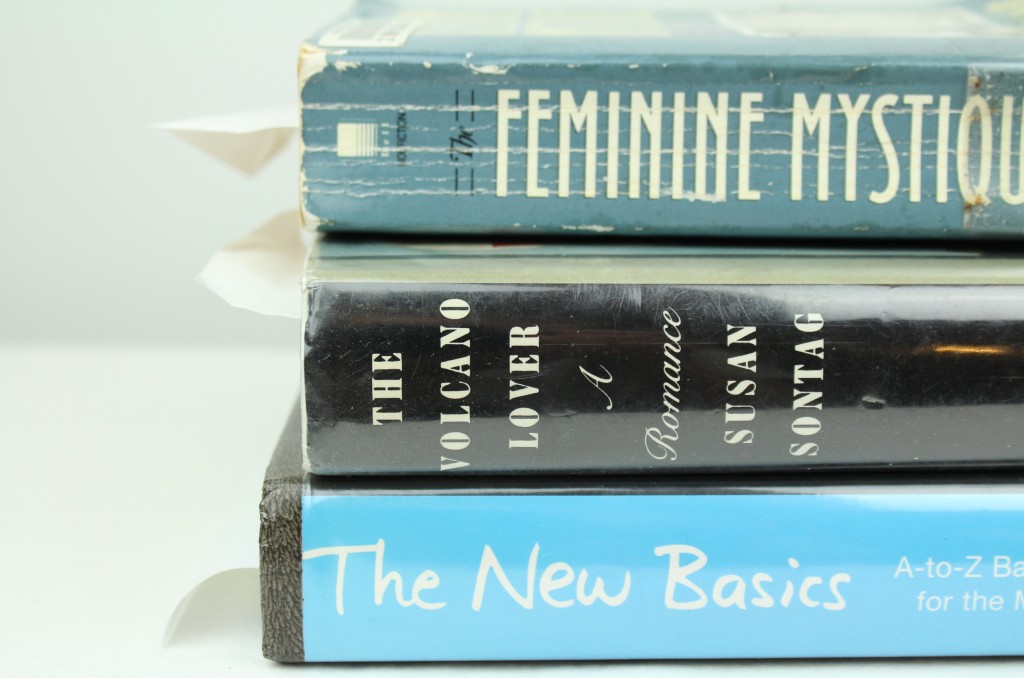Le Comte de Monte-Cristo, Dumas — en français! Lentement! A friend inspired me to get back to this (I’ve been poking at it for ages), and this time to adopt the approach of a child reading above her comprehension level. That is, to skip over the words I do not know, and not think too much about them (ideally transcending conscious thought regarding my ignorance altogether, and becoming semi- or (still better) completely oblivious to the fact that I do not know them). Wise, wise children.
Notes of a Native Son, James Baldwin — Geek Outsider recommended this so highly that she gave me her spare copy. Such kindness! Such generosity!
The Woman Upstairs, Claire Messud — Messud’s latest, and it’s interesting. Imagine a female voice with ire reminiscent of the narrator in Notes from the Underground. You do not come across so many of those (are there any others?), and it is refreshing. It’s strange while reading to remember Messud’s actual voice, which is soft, and more or less just as you imagine a gentle, quintessentially pacific kindergarten teacher’s voice.
Here, for example, are the first several lines.
“How angry am I? You don’t want to know. Nobody wants to know about that.
I’m a good girl, I’m a nice girl, I’m a straight-A, strait-laced, good daughter, good career girl, and I never stole anybody’s boyfriend and I never ran out on a girlfriend and I put up with my parent’s shit and my brother’s shit, and I’m not a girl anyhow, I’m over forty fucking years old, and I’m good at my job and I’m great with kids and I held my mother’s hand when she died, after four years of holding her hand while she was dying, and I speak to my father every day on the telephone—every day, mind you, and what kind of weather do you have on your side of the river, because here it’s pretty gray and a bit muggy too? It was supposed to say “Great Artist” on my tombstone, but if I died right now it would say “such a good teacher/daughter/friend” instead; and what I really want to shout, and want in big letters on that grave, too, is FUCK YOU ALL.
Don’t all women feel the same? The only difference is how much we know we feel it, how in touch we are with our fury.”
See what I mean?
Stuff Parisians Like, Olivier Magny — I’m pretty entertained by this. A cheeky compendium of comically detailed Parisian stereotypes that is, evidently, often not too far off the mark.
“It is important to realize that most Parisians are tired of most of their friends. Hence, a natural defiance against new friends. They will probably be tired of them soon as well. Why bother?”
“There is no wearing red or yellow in Paris if you are mentally sane. Blue is acceptable. Especially navy blue, which has the good taste of being easily mistaken for black.”
“Parisian men are not to shave every day. Parisian men are to have scruff.
A good scruff sends Parisian men to the very top of the sexiness scale. Men with scruff are somewhere between Indiana Jones in Malaysia and George Clooney on a Sunday afternoon. Scruff makes Parisian men irresistible.
Parisian men want to be irresistible.
Parisian women love their men with a scruff. They love this itchy expression of adventure that grows on their men’s faces. A scruff offers Parisians just the right dose of adventure. Civilized adventure. The look of adventure without the smell of it. Potential is more than enough in Paris.”
If you cannot see that this is funny, I am sorry for you.
Also I am completely in agreement with this business about stubble.




